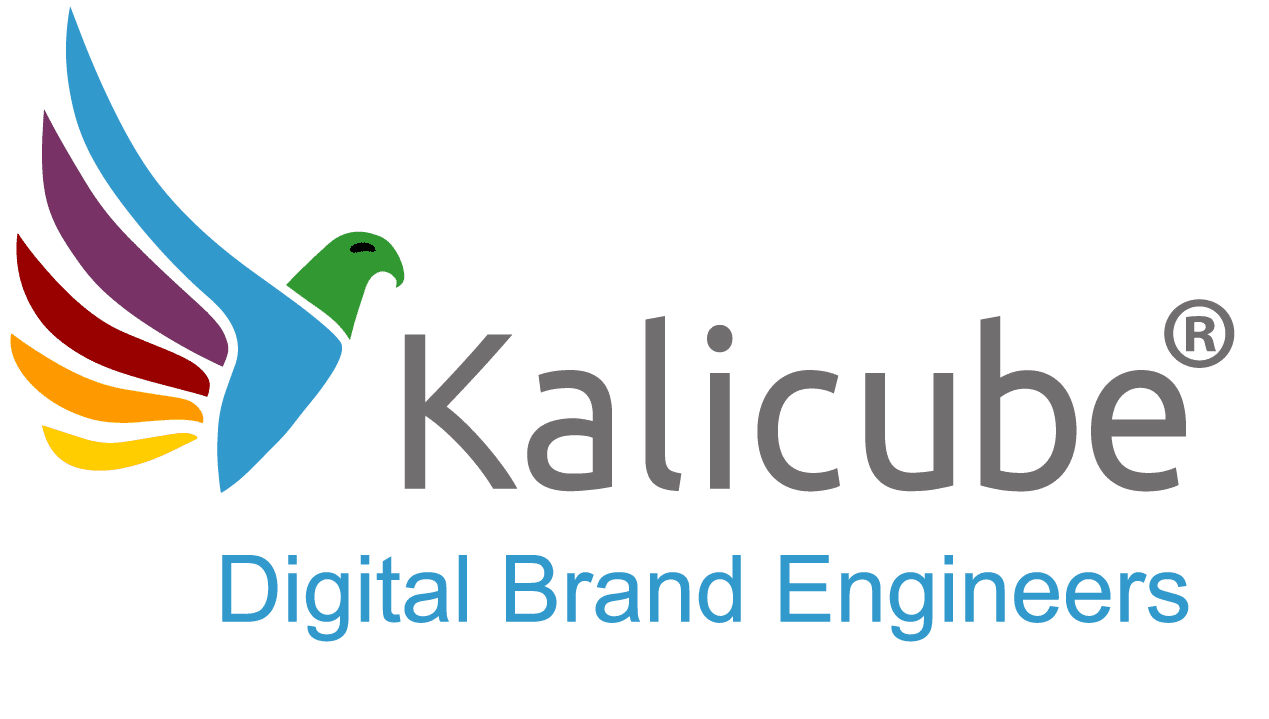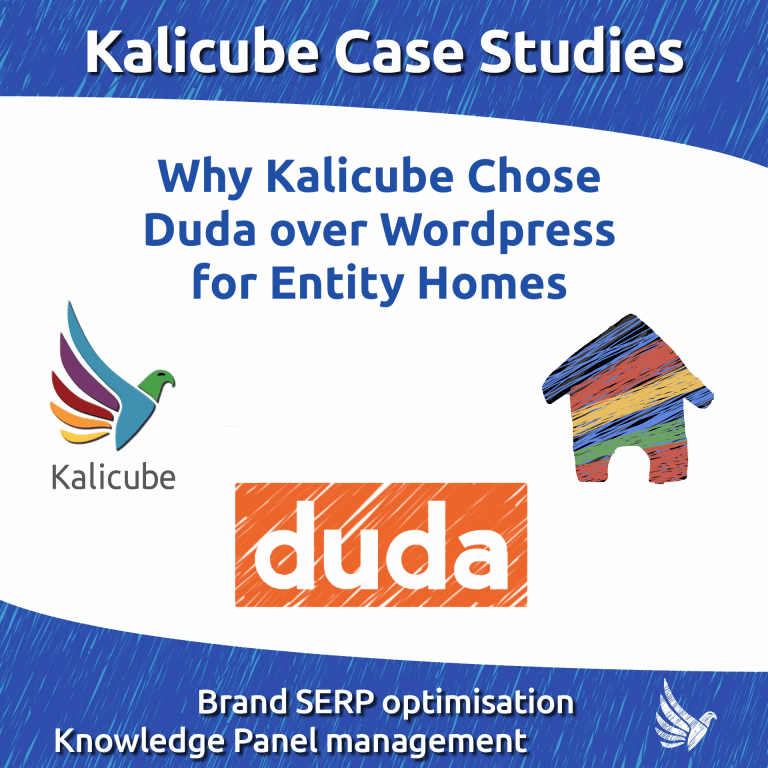How Can You Positively Influence Google’s Perception of Your Brand?

If you ignore how search engines and AI platforms perceive your brand, you risk being misunderstood or misrepresented online. This can lead to missed opportunities, lower search rankings, and a disconnect with your target audience. To prevent this, it’s crucial to take proactive steps in managing your brand’s online presence.
By creating a well-structured website that communicates effectively with both your human audience and these digital platforms, you can positively influence how your brand is perceived. Jason Barnard, entrepreneur and CEO of Kalicube, emphasizes that focusing on clear, consistent communication is key to building trust and authority over time.
What Steps Can You Take to Achieve Long-term Self-determination for Your Brand?
To achieve long-term self-determination for your brand, you should start by building a simple, effective website that serves both your human audience and search engines. This dual approach allows you to control your brand narrative and how it is presented across various platforms.
Remember, the key to this strategy is consistency.
By maintaining a focused and factual website, you ensure that both your audience and AI platforms receive the same, accurate information about your brand. This approach empowers you to shape how your brand is perceived over time, giving you the ability to steer your brand’s direction and reputation.
Examples of Long-term Self-determination:
- Personal Brands: A consultant or influencer can control their online reputation by regularly updating their website with accurate credentials, testimonials, and content tailored to both followers and search engines.
- Small Businesses: An artisan bakery can use its website to emphasize its unique selling points, such as locally sourced ingredients, ensuring that these details are consistently highlighted across search engines and AI platforms.
What Essential Elements Should Your Website Contain?
Your website should contain a homepage for your audience and an about page for search engines and AI systems. These two elements are crucial because they serve distinct purposes that together, contribute to the overall perception and credibility of your brand.
The homepage should be designed with your audience in mind, focusing on delivering a clear and engaging message about your brand, products, or services.
On the other hand, the about page should be factual, concise, and filled with trust signals, such as credentials, history, and any relevant accolades. This page is particularly important for search engines and AI platforms, which rely on it to understand and categorize your brand correctly.
Key Elements for an Effective Website:
- Homepage: Engaging visuals, clear brand message, call-to-actions, and user-friendly navigation.
- About Page: Detailed biography, mission statement, trust signals (e.g., awards, certifications), and contact information.
- Additional Pages (Optional): Blog for content marketing, services/products page with detailed descriptions, and a testimonials page to showcase customer feedback.
Why Should Your Website Have A Homepage and An About Page?
Your website should have a homepage and an about page because these two pages serve different but complementary roles in shaping how both humans and machines perceive your brand.
The homepage is the primary entry point for visitors and should immediately communicate what your brand stands for, engaging your audience with content that resonates with them.
The about page is more technical and detailed, providing a factual account of your brand that search engines like Google can use to accurately represent you in search results.
By clearly separating the content intended for your audience from the content aimed at machines, you can ensure that both receive the most relevant and impactful information, enhancing your brand’s credibility and authority.
How Can a Small Website Influence AI Platforms?
A small website can influence AI platforms by providing a well-structured, clear, and focused source of information about your brand. AI platforms, including ChatGPT, Perplexity, and Apple’s search algorithms, rely heavily on the quality and clarity of the information they retrieve from the web.
By maintaining a simple website with a homepage and about page, you ensure that these platforms have access to accurate and well-organized data, which they can then use to present your brand to users.

Applications of a Small Website in AI Influence:
- Local Businesses: A local restaurant can use its small website to consistently rank in local searches by providing clear, up-to-date information that AI platforms can easily index and present to users.
- Personal Brands: A freelance graphic designer can influence how AI platforms categorize and display their services by regularly updating their website with portfolio highlights, client testimonials, and industry-relevant keywords.
How Does Kalicube Help Brands Control Your Online Presence?
Kalicube helps brands to take control of their online presence through the Kalicube® Process - a comprehensive strategy designed to manage and optimize how your brand appears in digital search results. Here’s how it works.
- Identify Online Presence: Kalicube scans the digital landscape to pinpoint where your brand currently exists online.
- Evaluate Performance: It assesses the effectiveness of these presences, highlighting strengths and identifying areas that need improvement.
- Ensure Consistency: The platform guarantees that your brand’s online information is consistent, accurate, and fully aligned with your brand messaging wherever it appears.
- Optimize Brand SERP: By analyzing data from sources like Google’s Knowledge Graph, Kalicube Pro offers strategies to enhance your Brand SERP, ensuring that search results reflect positive and persuasive information about your brand.

The ultimate goal of The Kalicube Process™ is to shape and improve your brand’s digital representation. This not only attracts the right customers but also reduces visibility for your competitors.
Leveraging proprietary algorithms and a cutting-edge database of 3 billion data points, the Kalicube Pro platform tailors a bespoke implementation of the Kalicube Process for each client.
The Kalicube Process ensures that every potential online interaction with your brand conveys trustworthiness and credibility.
By implementing the Kalicube Process, you will:
- Gain control over your digital identity
- Strengthen your personal or business brand
- Increase online traffic and customer engagement
- Dominate search results while diminishing competition visibility
Starting with an unbiased analysis of your Brand SERP, the Kalicube Process crafts an ideal digital strategy within just one week, efficiently transforming insights into profitable actions.
Conclusion
Building a strong online brand doesn’t happen by accident. It requires a strategic approach that starts with optimizing what you already have. By focusing on your existing online footprint, establishing a clear and authoritative web presence, and maintaining consistency across all platforms, you can create a brand that not only stands out but also thrives in the digital landscape.
If you’re ready to take your brand to the next level, don’t leave it to chance. Book a call with Kalicube today, and let us help you build a powerful and cohesive online brand that drives real results.





